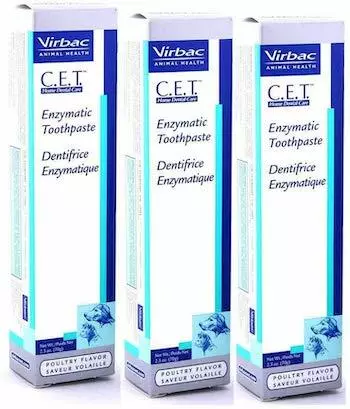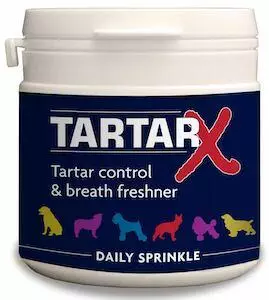A fantastic budget option for your prized pooch, Beapher’s advanced enzyme action tooth gel is a great way of offering daily protection to your dog’s teeth and gums.
Using a mixture of enzymes and sodium polyphosphate, Beaphar’s star ingredient is propolis, a bee produced compound which acts as a teeth-strengthening agent and contains antioxidants that fight disease and damage to the body, so you can say goodbye to nasty gum diseases like gingivitis.
While many kinds of toothpaste boast their ability to remove plaque from your pet’s teeth, not many offer the incredible anti-tartar effects of Beaphar. Any plaque that resides on teeth uncleaned eventually combines with calcium to form tartar. But Beaphar’s ingredients bind to that calcium to stop leftover plaque from ever even forming a calcified layer.
A scrumptious liver flavour also encourages your dog to circulate the gel over their teeth with their tongue, meaning they become accustomed to the taste quickly, and may even come to enjoy getting their teeth cleaned.
This handy toothbrush combo kit comes with a soft grip toothbrush which is perfect for pups of all breeds and sizes. It’s double-ended brush also means there’s no escape for plaque, as you can give a vigorous brush to every nook and cranny of your mutt’s mouth.
And with a recommended usage of 2-3 times per week, Beaphar keeps your dog’s oral hygiene programme a little more spread out, making teeth cleaning easier to fit around both of your busy schedules!
Ingredients list: Anti-Plaque enzyme system (Protease, Glucose Oxidase), Sodium tripolyphosphate, Zinc Citrate trihydrate, Sorbitol, Hydrated silica, Chicken egg powder, Pork liver powder











